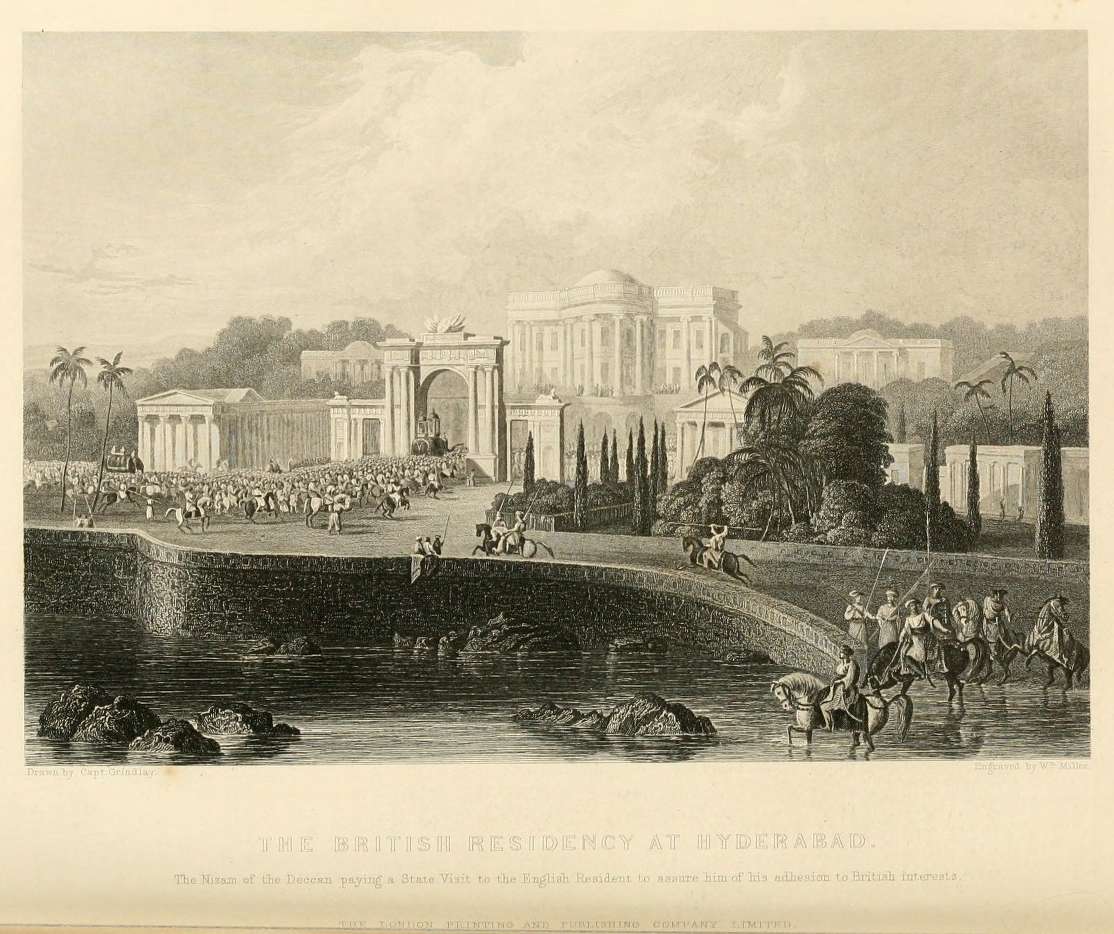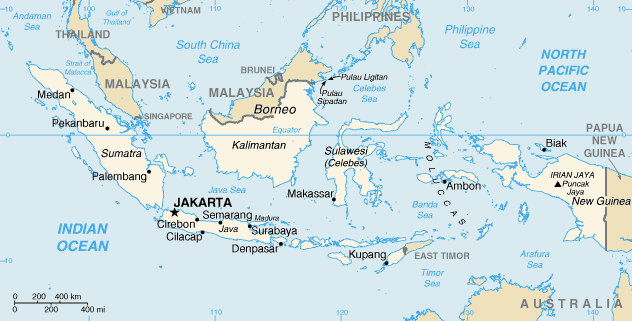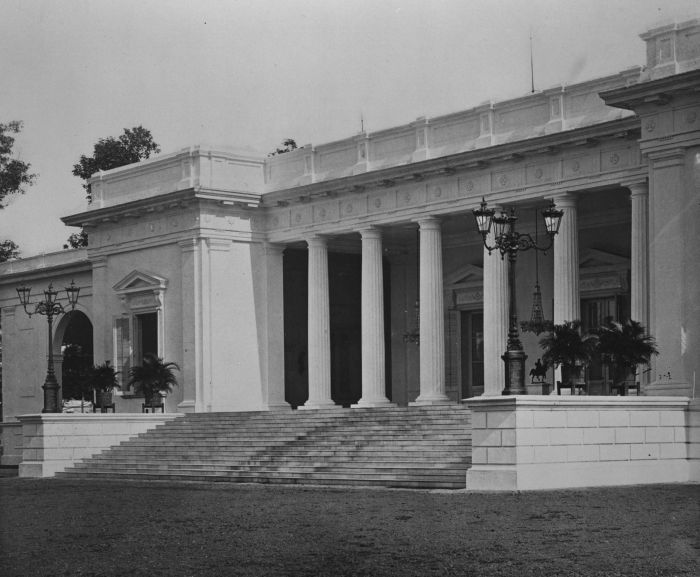|
Han Chan Piet
Han Chan Piet, Majoor der Chinezen (1759 – 1827), also spelt Han Tjan Piet or Han Tian Pit, was a Peranakan Chinese magnate, government official and landlord in East Java. He is best remembered for having bought the districts of Besuki and Panarukan in 1810 from the colonial government. Family Background Han Chan Piet ''Sia'' was born in 1759 in Surabaya, the third of twelve sons, to Han Bwee Kong (1727 – 1778), and was as such a grandson of the Chinese-born migrant Han Siong Kong (1672 – 1743), founder of the powerful Han family of Lasem. His father, Han Bwee Kong, held the civil government position of ''Kapitein der Chinezen'', which gave him legal and political authority over the Chinese community of Surabaya as part of the Dutch colonial policy of ''Indirect Rule''. The Kapitein was also ''Pachter'', or leaseholder, of the districts of Besuki (from 1768) and Panarukan (from 1777). As the son of a Chinese officer, Han Chan Piet bore the hereditary title 'Sia'. Other ... [...More Info...] [...Related Items...] OR: [Wikipedia] [Google] [Baidu] |
Han (Chinese Surname)
Han () is a common Chinese surname. The spelling "Han" is based on China's pinyin system and so used throughout Mainland China. Spelling can vary from 'Hon' in Cantonese-speaking areas to 'Hang' in Hainan. It is the 15th name on the ''Hundred Family Surnames'' poem. In 2003, Han (韩) is ranked 25th in China in terms of the number of bearers at around 8 million persons. In 2019 it was the 28th most common surname in Mainland China. Less common Chinese surnames romanized as ''Han'' include: 寒 (Hán) and 汉/漢 (Hàn). Four Chinese Origins of '韩' From '姬' surname ' 姬' (Jì) is an ancient Chinese surname. It is an alternate surname of the Yellow Emperor (Gongsun Xuanyuan) and the Zhou ruling family. A descendant of King Wu of Zhou, Wan, was given land in Hanyuan. Wan's descendants created the State of Han during the Warring States period. When the state was conquered by Qin in 230 BC, members of the ruling family adopted Han '韩' as their surname. From the transcrip ... [...More Info...] [...Related Items...] OR: [Wikipedia] [Google] [Baidu] |
Priyayi
''Priyayi'' (former spelling: ''Prijaji'') was the Dutch East Indies, Dutch-era class of the nobles of the robe, as opposed to royal nobility or ''ningrat'' (Javanese language, Javanese), in Java, Indonesia, the List of islands by population, world's most populous island. ''Priyayi'' is a Javanese word originally denoting the descendants of the ''adipati'' or governors, the first of whom were appointed in the 17th century by the Sultan Agung of Mataram to administer the principalities he had conquered. Initially court officials in pre-colonial kingdoms, the ''priyayi'' moved into the colonial civil service and then on to administrators of the modern Indonesian republic. Pre-colonial period The Mataram Sultanate, an Islamic polity in south central Java that reached its peak in the 17th century, developed a Kraton (Indonesia), ''kraton'' ("court") culture from which the Sultan emerged as a charismatic figure that rules over a relatively independent aristocracy. Named ''para yay ... [...More Info...] [...Related Items...] OR: [Wikipedia] [Google] [Baidu] |
Cabang Atas
The Cabang Atas (''Van Ophuijsen Spelling System'': Tjabang Atas) — literally 'highest branch' in Indonesian — was the traditional Chinese establishment or gentry of colonial Indonesia. They were the families and descendants of the Chinese officers, high-ranking colonial civil bureaucrats with the ranks of ''Majoor'', ''Kapitein'' and ''Luitenant der Chinezen''. They were referred to as the baba bangsawan ��Chinese gentry’in Indonesian, and the ba-poco in Java Hokkien. As a privileged social class, they exerted a powerful influence on the political, economic and social life of pre-revolutionary Indonesia, in particular on its local Chinese community. Their institutional control of the Chinese officership declined with the colonial Ethical Policy of the early twentieth century, but their political, economic and social influence lasted until the Indonesian revolution (1945-1950). Origin of term The phrase 'Cabang Atas' was first used by the colonial Indonesian historia ... [...More Info...] [...Related Items...] OR: [Wikipedia] [Google] [Baidu] |
1827 Deaths
Eighteen or 18 may refer to: * 18 (number), the natural number following 17 and preceding 19 * one of the years 18 BC, AD 18, 1918, 2018 Film, television and entertainment * ''18'' (film), a 1993 Taiwanese experimental film based on the short story ''God's Dice'' * ''Eighteen'' (film), a 2005 Canadian dramatic feature film * 18 (British Board of Film Classification), a film rating in the United Kingdom, also used in Ireland by the Irish Film Classification Office * 18 (''Dragon Ball''), a character in the ''Dragon Ball'' franchise * "Eighteen", a 2006 episode of the animated television series ''12 oz. Mouse'' Music Albums * ''18'' (Moby album), 2002 * ''18'' (Nana Kitade album), 2005 * '' 18...'', 2009 debut album by G.E.M. Songs * "18" (5 Seconds of Summer song), from their 2014 eponymous debut album * "18" (One Direction song), from their 2014 studio album ''Four'' * "18", by Anarbor from their 2013 studio album '' Burnout'' * "I'm Eighteen", by Alice Cooper commonl ... [...More Info...] [...Related Items...] OR: [Wikipedia] [Google] [Baidu] |
1759 Births
In Great Britain, this year was known as the ''Annus Mirabilis'', because of British victories in the Seven Years' War. Events January–March * January 6 – George Washington marries Martha Dandridge Custis. * January 11 – In Philadelphia, the first American life insurance company is incorporated. * January 13 – Távora affair: The Távora family is executed, following accusations of the attempted regicide of Joseph I of Portugal. * January 15 – **Voltaire's satire ''Candide'' is published simultaneously in five countries. ** The British Museum opens at Montagu House in London (after six years of development). * January 27 – Battle of Río Bueno: Spanish forces, led by Juan Antonio Garretón, defeat indigenous Huilliches of southern Chile. * February 12 – Ali II ibn Hussein becomes the new Ruler of Tunisia upon the death of his brother, Muhammad I ar-Rashid. Ali reigns for 23 years until his death in 1782. * February 16 – ... [...More Info...] [...Related Items...] OR: [Wikipedia] [Google] [Baidu] |
Residency (country Subdivision)
A Residency was an administrative division of: *the former British Empire. Most notable were the following: **British Residency of the Persian Gulf **Residencies of British India see: :Residencies of British India *the Dutch East Indies, e.g. **Jambi Residency, Batavia Residency, Semarang Residency, etc. See Administrative divisions of the Dutch East Indies. See also *Presidency (administrative division) The provinces of India, earlier presidencies of British India and still earlier, presidency towns, were the administrative divisions of British governance on the Indian subcontinent. Collectively, they have been called British India. In one ... References {{Types of administrative division Types of administrative division ... [...More Info...] [...Related Items...] OR: [Wikipedia] [Google] [Baidu] |
Sir Stamford Raffles
Sir Thomas Stamford Bingley Raffles (5 July 1781 – 5 July 1826) was a British statesman who served as the Lieutenant-Governor of the Dutch East Indies between 1811 and 1816, and Lieutenant-Governor of Bencoolen between 1818 and 1824. He is best known mainly for his founding of modern Singapore and the Straits Settlements also called Malaysia and Brunei. Raffles was heavily involved in the capture of the Indonesian island of Java from the Dutch during the Napoleonic Wars. The running of day-to-day operations on Singapore was mostly done by William Farquhar, but Raffles was the one who got all the credit. He also wrote ''The History of Java'' (1817). Early life Thomas Stamford Bingley Raffles was born on on board the ship ''Ann'', off the coast of Port Morant, Jamaica, to Captain Benjamin Raffles (1739, London – 23 November 1811, Deptford) and Anne Raffles (née Lyde) (1755 – 8 February 1824, London). Benjamin served as a ship master for various ships engaged in the di ... [...More Info...] [...Related Items...] OR: [Wikipedia] [Google] [Baidu] |
Probolinggo Regency
Probolinggo Regency ( id, Kabupaten Probolinggo) is a List of regencies and cities of Indonesia, regency in East Java province of Indonesia. It covers an area of 1,696.17 sq. km, and had a population of 1,096,244 at the 2010 Census and 1,152,537 at the 2020 Census; the official estimate as at mid 2021 was 1,155,894. Its capital was formerly the city of Probolinggo, but after that city became an independent administrative identity the capital is now at Kraksaan. History Indonesian National Revolution The Dutch marines landed in Situbondo on 21 July 1947. They didn't meet much resistance from Indonesian forces. Some of them headed west to attacked Probolinggo from the east of the regency. At 16.15 on the same day, the forces supported by armored vehicles already arrived at Kraksaan. At 17.30, they already held the Probolinggo, downtown area. On 22 July morning, the Dutch seized the port of the city. They then set up perimeter near the railway, but met heavy resistance there ... [...More Info...] [...Related Items...] OR: [Wikipedia] [Google] [Baidu] |
Temenggong
Temenggong or Tumenggung ( Jawi: تمڠݢوڠ; ''Temenggung'', Hanacaraka: ꦠꦸꦩꦼꦁꦒꦸꦁ; ''Tumenggung'') is an old Malay and Javanese title of nobility, usually given to the chief of public security. Responsibilities The Temenggong is usually responsible for the safety of the monarch (raja or sultan), as well as overseeing the state police and army. A temenggong may also be assigned by its sovereign as a ruler in frontier regions, acting as either a regent or a viceroy with additional development & military responsibility (comparable to European Marquess). Johor In the Sultanate of Johor, the Temenggong of Muar held a fief centered in Segamat for approximately two centuries and the Temenggong of Johor was the head of the fief (Johor mainland) between 1760 and 1868. The full rendition of the Johor Temenggong was ''Temenggung Seri Maharaja''. Although the Temenggong was the head of the fief's administration, the Temenggong held the Johor Sultanate by virtue of hi ... [...More Info...] [...Related Items...] OR: [Wikipedia] [Google] [Baidu] |
Ronggo
Ronggo was an administrative title used by the Dutch in the Dutch East Indies in Indonesia (specifically Java and Borneo.) History Ronggo of "Afdeeling" Bandjarmasin was held by Kiahi Mas Djaja Samoedra (circa 1899) (EYD or "''advanced spelling''": Kiai Mas Jaya Samudera). The region saw much international trade with Asia and the Middle East. After a period of warfare dominated much of the late 1500s to mid 1600s, Portugal controlled the area for a short time. Following Portuguese control, the Dutch East India Company awarded a monopoly on trade and colonization in the area utilizing an exceptional financial backing, better organization, strategy, weapons and ships, but were still unable to completely dominate the Indonesian spice trade. In the 1800s, the Dutch East India Company dissolved due to bankruptcy and the Netherlands turned it into a nationalized colony. Bandjarmasi leadership structure: *Assistant Resident: E.B. Masthoff *Police chief: C.W.H. Born *Ronggo: Kiahi ... [...More Info...] [...Related Items...] OR: [Wikipedia] [Google] [Baidu] |
Governor-General Of The Dutch East Indies
The governor-general of the Dutch East Indies ( nl, gouverneur-generaal van Nederlands Indië) represented Dutch rule in the Dutch East Indies between 1610 and Dutch recognition of the independence of Indonesia in 1949. Occupied by Japanese forces between 1942 and 1945, followed by the Indonesian National Revolution until 1949. Indonesia proclaimed its independence on 17 August 1945. History The first governors-general were appointed by the Dutch East India Company (VOC). After the VOC was formally dissolved in 1800, the territorial possessions of the VOC were nationalised under the Dutch government as the Dutch East Indies, a colony of the Netherlands. Governors-general were now appointed by either the Dutch monarch or the Dutch government. During the Dutch East Indies era most governors-general were expatriate Dutchmen, while during the earlier VOC era most governors-general became settlers who stayed and died in the East Indies. Under the period of British control (1811 ... [...More Info...] [...Related Items...] OR: [Wikipedia] [Google] [Baidu] |
Herman Willem Daendels
Herman Willem Daendels (21 October 1762 – 2 May 1818) was a Dutch revolutionary, general and politician who served as the 36th Governor General of the Dutch East Indies between 1808 and 1811. Early life Born in Hattem, Netherlands, on 21 October 1762, Daendels was the son of Burchard Johan Daendels, the mayoral secretary, and Josina Christina Tulleken. He studied law at the University of Harderwijk, acquiring his doctorate on 10 April 1783. Political activity In 1785, he sided with the Patriots, who had seized power in several Dutch cities. In September 1786 he defended the city of Hattem against stadholderian troops. In September 1787, he defended Amsterdam against the Prussian army that invaded the Netherlands to restore William V of Orange. After William V was in power again, he fled to Pas-de-Calais because of a death sentence. Daendels was a close witness to the French revolution. He returned to the Netherlands in 1794, as a general in the French revolutionary army of g ... [...More Info...] [...Related Items...] OR: [Wikipedia] [Google] [Baidu] |







